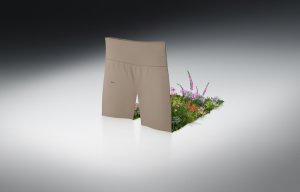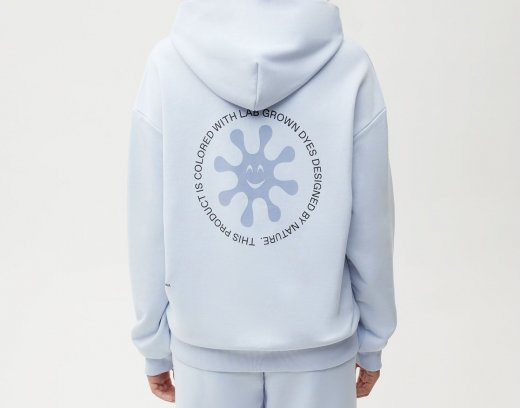
Pangaia expands plant-based activewear collection
Young brand aims to prove its worth as a materials innovator.

7th April 2022
Knitting Industry
|
New York City
Pangaia has established a formidable position as a materials science company to be reckoned with, despite being a relatively young brand, according to 31-page report called Profile of Pangaia: a fast-growing apparel brand, materials innovator and environmental steward poised for success from the global business information company Textiles Intelligence.
The company has a comprehensive portfolio of loungewear which has hit the mark with a new demographic of consumers who value comfort and have been spending more time in their homes as a result of restrictions introduced to stem the spread of COVID-19.
However, the brand is proving its worth beyond loungewear with the development of high-performance biomaterials which provide comparable performance, if not superior performance, to that of petroleum-based materials.
Conventional petroleum-based materials continue to be widely used in the apparel industry regardless of the negative impact they have on the environment, but Pangaia is forging a path for the development of natural and renewable materials which have a positive impact on the environment.
The company’s efforts are not in vain. Online searches for environmentally sustainable fashion are increasing year-on-year, according to a global fashion search engine, Lyst. In fact, they have rocketed since the widespread outbreak of COVID-19 which put environmental issues under the spotlight. In many cases, the COVID-19 pandemic has inspired consumers to reflect on the environmental damage caused by the goods they purchase.
Looking ahead, Pangaia is well positioned to cater to growing demand for environmentally sustainable fashion--not least because of the functionality which the brand’s innovations provide.
Such innovations include a high-performance thermal insulation material called FLWRDWN. Unlike conventional insulation materials, which are typically made using synthetic fibres or animal down, FLWRDWN is made using biopolymer and wildflowers. Moreover, it is breathable, durable and thermoregulating.
Other innovations include a plant-based fabric called FRUTFIBER which is produced using materials derived from agricultural waste.
Typically, agricultural waste is burned, sent to landfill or disposed of in ways which are harmful to the environment. For Pangaia, the manufacture of fabric using materials derived from agricultural waste provides an ideal solution to the problem of pre-consumer waste in the fruit industry. Also, Pangaia believes that the inclusion of materials derived from agricultural waste in the manufacture of its fabrics enables it to offer products of higher added value.
FRUTFIBER is treated with an antimicrobial and anti-odour treatment called PPRMINT which is made using oil from the mentha piperita plant. Unlike conventional treatments, PPRMINT does not contain silver ions or other metals to help control odours trapped in a fabric. These metals can leach into waterways and can be toxic for wildlife, humans and the environment.
Pangaia has demonstrated a rapid pace of innovation since it was founded, and the company has no plans to slow down. In fact, major strides can be expected from Pangaia in the coming years, not least in the development of biodegradable ‘alternative leather’ materials, environmentally friendly dyes, and sustainable alternatives to virgin cotton fibre and virgin animal fibre.
Indeed, the company looks set to make a significant impression on the global apparel market on the basis of these developments alone.
Buy this report
The report is available for purchase on Innovation in Textiles by following this link -

Business intelligence for the fibre, textiles and apparel industries: technologies, innovations, markets, investments, trade policy, sourcing, strategy...
Find out more